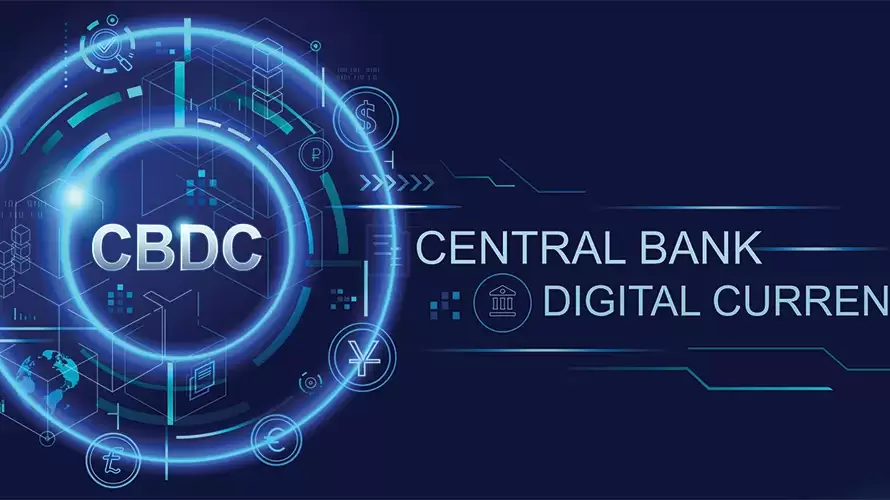By Sanja de Silva Jayatilleka
The recent gazette on Economic Transformation, Part II of May 10, 2024, includes several brand-new “incorporated” institutions with unprecedented power and new lines of authority, as well as an ultra-powerful roaming ambassadorship, to promote investment in Sri Lanka.
Significantly, they all seem to come under the direct control of the President, through his authority to hire and fire most of their members including the Chairpersons.
They replace or have authority over the existing institutions which are currently vested with these responsibilities, now proposed to be transferred to the new entities.
They are authorized to have their own funds and recruit staff and some even to establish branches overseas and have representatives and staff in other countries.
They are to have authority over some elected bodies and other government departments, to request and obtain information from them, which they are legally obliged to provide. Two of the new institutions have secrecy clauses which prevent their staff from divulging information except in exceptional circumstances such as under the right to information act.
While this entire new structure may have been conceived of with the hope of fast-tracking investment decisions, it is yet unclear if this arrangement complies with the necessary principles and controls such as the separation of powers and other checks and balances to prevent financial misdemeanors, in a country that is now well-known for corruption and outright scams by the ruling elite. As such this new structure needs time to be examined by those qualified to do so before being written into law.
Hotly Debated
The Bill needs much closer scrutiny since it is sought to be included in our corpus of laws, and therefore assumes a greater significance not usually accorded to policy measures.
For one, it has been observed that these changes to the structure and the architecture of economic management proposed in the Bill, are those driven by an unelected President with mere months to finish his term, or rather, the term of his predecessor.
The Parliament is being urged to delay this Bill until a President is elected in a few months to implement necessary changes for which a mandate from the people has been received and with it their support, rather than their mistrust and hostility.
Opposition parties have expressed concern over the powers exercised by the President over these institutions, and the rush to pass it. They have expressed their concern that the Bill in its entirety seems like an attempt to include into the country’s legislation, the conditionalities which were the results of the current Cabinet’s negotiations with the IMF.
This is a valid concern since we can surmise that a different administration may well have been able to secure a different, more favourable agreement. However, incorporating this Bill into law will force a new administration to abide by the maximum this interim President was able to secure for the country, leaving little room for adjustments which an elected President with his own Cabinet may think more beneficial for the people who conferred a mandate on them.
On a recent TV program where experts discussed this draft legislation, a lawyer argued that the detailed nature of this Bill, which inter alia includes various economic percentages to be achieved within a certain time frame, if incorporated into law, restricts the people’s sovereign right to decide the country’s economic policies from time to time through elections. Whether it is wise to do so every five years is irrelevant to this question of their fundamental right, enshrined in the Constitution. An administration with a different economic program or ideology, if elected by the people having been convinced of the efficacy of its proposals, should be able to implement what the people have chosen, he suggested.
On this basis, the current Bill, presented by an interim President without having obtained a mandate from the people even to enter Parliament, should not be rushed through into legislation. The economic crisis cannot be a reason to throw caution to the wind, when the impact of such deep-going changes affects a society facing increasing poverty.
As for the new institutions, the President’s powers to appoint a disproportionate number of members as well Chairpersons to the Boards, is a reason for some anxiety for the citizens.
The last time the present President, at the time the Prime Minister was authorized to appoint an empowered head of an institution, the Governor of the Central Bank, the person so appointed participated with members of the President’s party to engage in a massive fraud famously known as the Bond Scam, and is currently evading an international arrest warrant and repatriation to Sri Lanka to face charges.
It is therefore imperative to have adequate checks and balances to prevent an excess of concentration of power in anyone’s hand, despite what appears to be an imperative requirement of the economic crisis. The crisis was in considerable measure a result of corruption of and facilitated by politicians and therefore demands that proper systems with adequate controls are in place.
The Institutions
The President’s influence over the new institutions embedded in the Economic Transformation Bill are as follows:
1. Economic Commission of Sri Lanka (EC), described as a body corporate:
6 members appointed by the President, the heads of 2 new institutions proposed in this Bill (also appointed by the President).
The President shall appoint the Chairperson of the EC.
2. Invest Sri Lanka, described as a body corporate:
Governed by a board with 3 to 5 members appointed by the EC.
Chairperson appointed by the EC.
3. Investment Zones Sri Lanka, described as a body corporate:
7-member board with 4 persons appointed by the Minister in charge (Ministry unspecified, therefore could be the President as Minister).
Minister in charge shall appoint the Chairperson.
4. Office of International Trade (OIT), described as a body corporate
Chairperson of the board and CEO appointed by the President, will also be the Ambassador for International Trade.
5 other members appointed by the President with the concurrence of the Constitutional Council.
Employees under secrecy clause.
5. Ambassador for International Trade:
Appointed by the President.
Shall be the chief negotiator for international trade negotiations for the purpose of conducting Sri Lanka’s international trade relations, both bilateral and multilateral.
Shall coordinate international trade matters and negotiations concerning the World Trade Organization (WTO), United Nations Conference on Trade and Development (UNCTAD), any country or country groupings in relation to international trade matters and negotiations, the Commonwealth and other international trade negotiations.
This role with enormous power seems to mirror and expand the role that Ambassador Milinda Moragoda played in India, where he was given Cabinet rank (for the first time in Sri Lanka) since which time he has negotiated the trade relationship with India, with its expanded role in Sri Lanka’s economy. This model seems to have been exponentially elasticized to cover the global arena as a separate institution where the designated Ambassador will take the lead in both bilateral and multilateral negotiations on behalf of Sri Lanka.
6. National Productivity Commission, described as a body corporate:
5 members appointed by the President.
President appoints the Chairperson.
Employees under secrecy clause.
7. Sri Lanka Institute for Economics and International Trade, described as a body corporate:
Minister appoints the Chairman. (No provision preventing President from being this Minister).
Members of the board include the Ambassador for International Trade (appointed by the President).
May appoint team of instructors from universities and private Think-Tanks.
The entire structure of future investment decisions in Sri Lanka, including the demarcation of economic zones, all trade negotiations, bilateral and multinational are now contained within this new structure. Since this arrangement covers the entire island and not just special economic zones, it does seem to concentrate an excess of power within it.
It has been argued that this sort of structure has succeeded in generating recovery and economic growth in other countries such as Bangladesh. However, given the massively controversial nature of some of the foreign direct investment being negotiated by this government currently, with geopolitical security and sovereignty implications, the people’s concerns should be addressed.
Critics point out that with the elections round the corner, a popularly elected President is far better suited to design, deliberate, and implement the required changes.
Sanja de Silva Jayatilleka is the author of “Mission Impossible – Geneva” (Vijitha Yapa, Colombo, 2017).
Factum is an Asia-Pacific focused think tank on International Relations, Tech Cooperation, Strategic Communications, and Climate Outreach accessible via www.factum.lk.
The views expressed here are the author’s own and do not necessarily reflect the organization’s.


